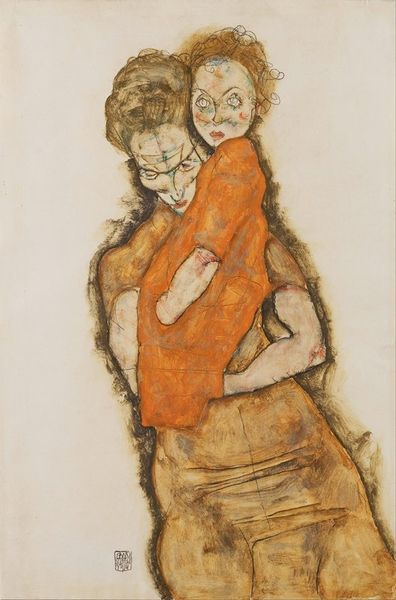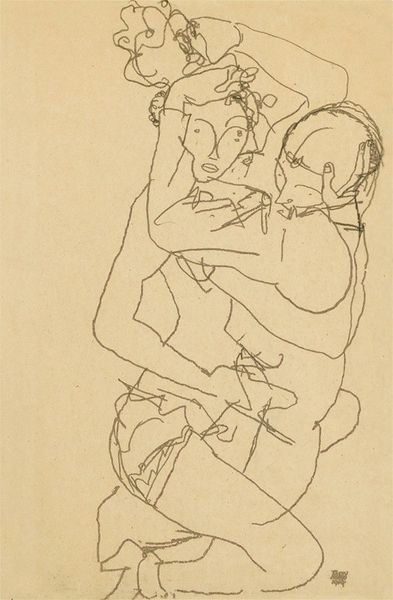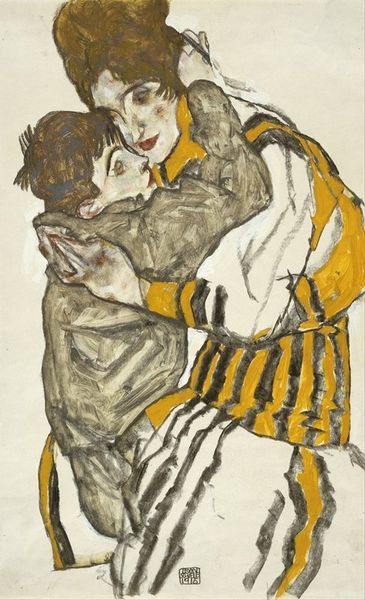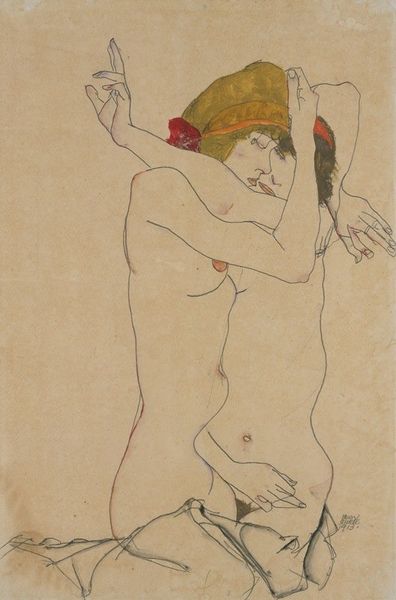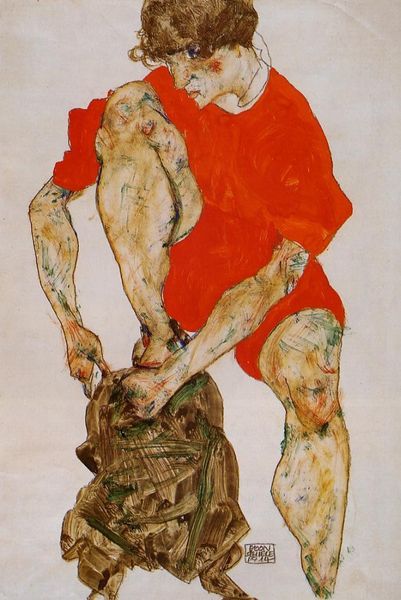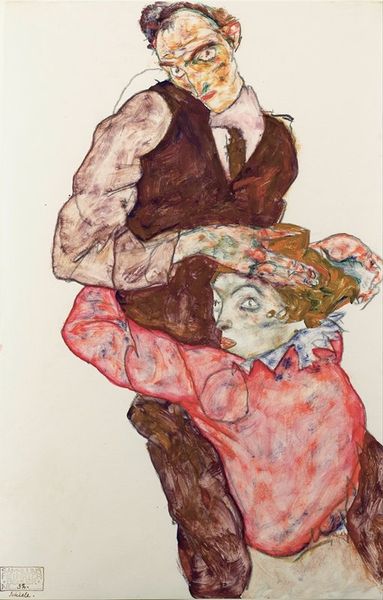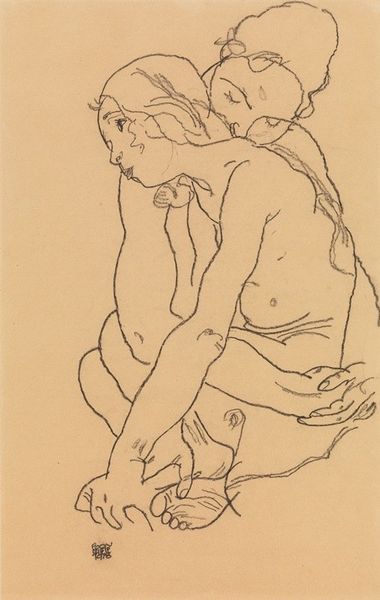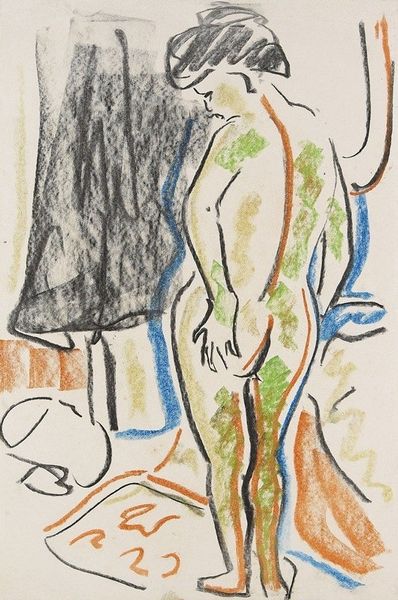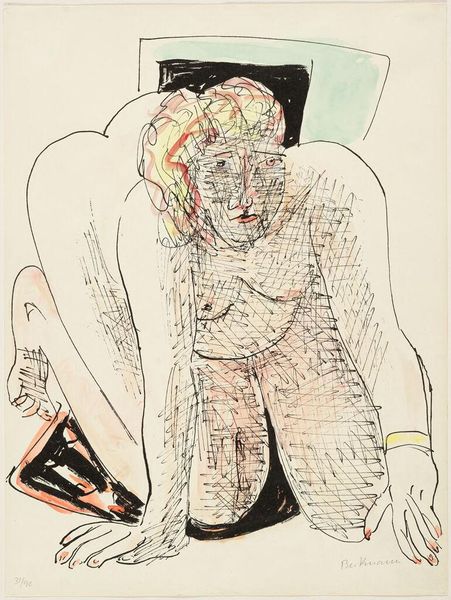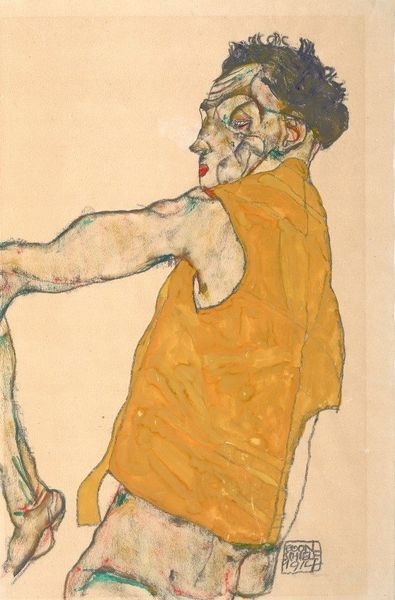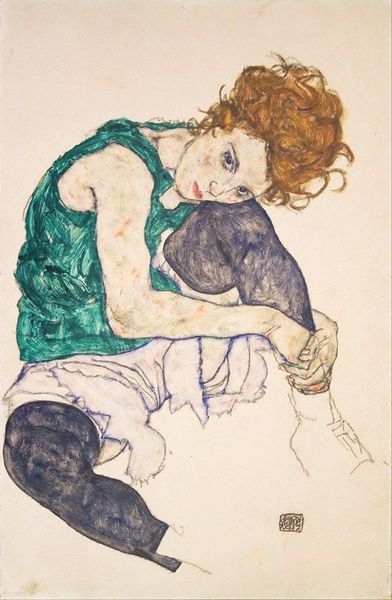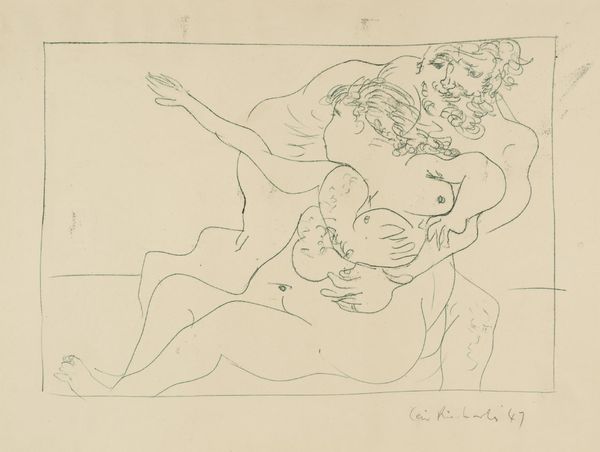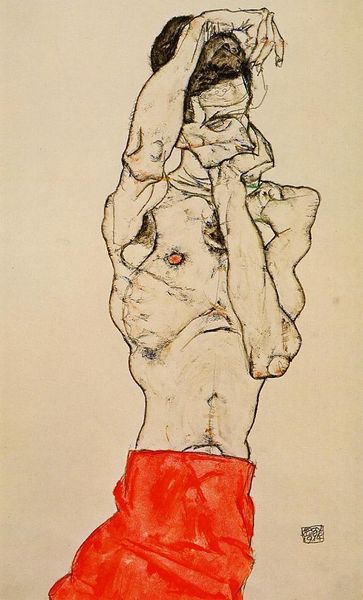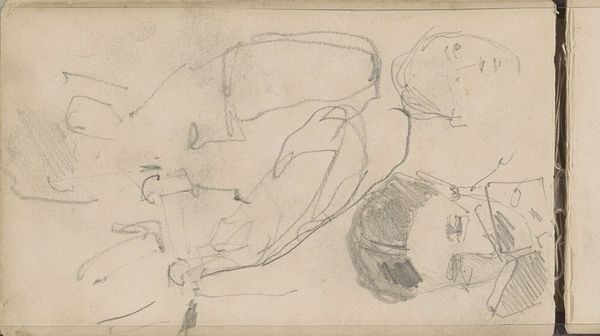
drawing, coloured-pencil
#
portrait
#
drawing
#
figurative
#
coloured-pencil
#
figuration
#
intimism
#
coloured pencil
#
expressionism
#
nude
Copyright: Public Domain: Artvee
Curator: The embrace feels almost desperate, doesn't it? Their limbs intertwine like knotted ropes, conveying anxiety as much as connection. Editor: That's interesting. It is, in fact, Egon Schiele's 1915 coloured pencil drawing, Lovemaking, made during a pivotal point in his life, poised to move from scandal-ridden outlier of Viennese expressionism to recognized darling of the Austrian art world. Curator: Yes, the positioning of the woman in front of the man could symbolise their intertwined emotional lives or hint to a desire for protection. Consider how they’re almost huddling together as though facing an unseen threat. Schiele masterfully plays with vulnerability and desire in the composition. Editor: He does. And 1915 Austria was ripe with unseen threats, on the edge of disintegration from within, embattled in war from without. These works, showing up increasingly in public exhibitions and publications, both defined and relieved some of this tension by putting taboo subjects in full view. It created a space, culturally, to recognize complex intimacies. Curator: And the emotional nakedness certainly goes beyond the literal nudity, with Schiele's exaggerated angular style and that strange color palette... It emphasizes the rawness. But is this then about their relationship with each other, or the collective mood of a people facing the abyss? Editor: I think it's difficult to pull them apart. These drawings and paintings gain importance precisely for their engagement with contemporary conditions: an expressionist artist wrestling with intimate life, historical rupture, and social progressivism. By then, Vienna had cultivated something of a taste for the art world outsider... so long as he generated headlines. Curator: Certainly. The way his images carry that double weight, the personal and the political… it really encapsulates why Schiele endures so powerfully in our cultural imagination. The psychology feels simultaneously so distant and immediate. Editor: It’s interesting how viewing them now highlights evolving conversations about art’s public role and the political weight of visual display. Curator: Yes. Schiele still provokes, because the emotional intensity feels utterly exposed, not historicized away.
Comments
No comments
Be the first to comment and join the conversation on the ultimate creative platform.
